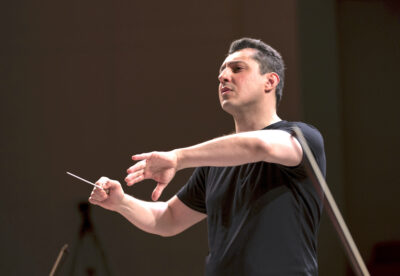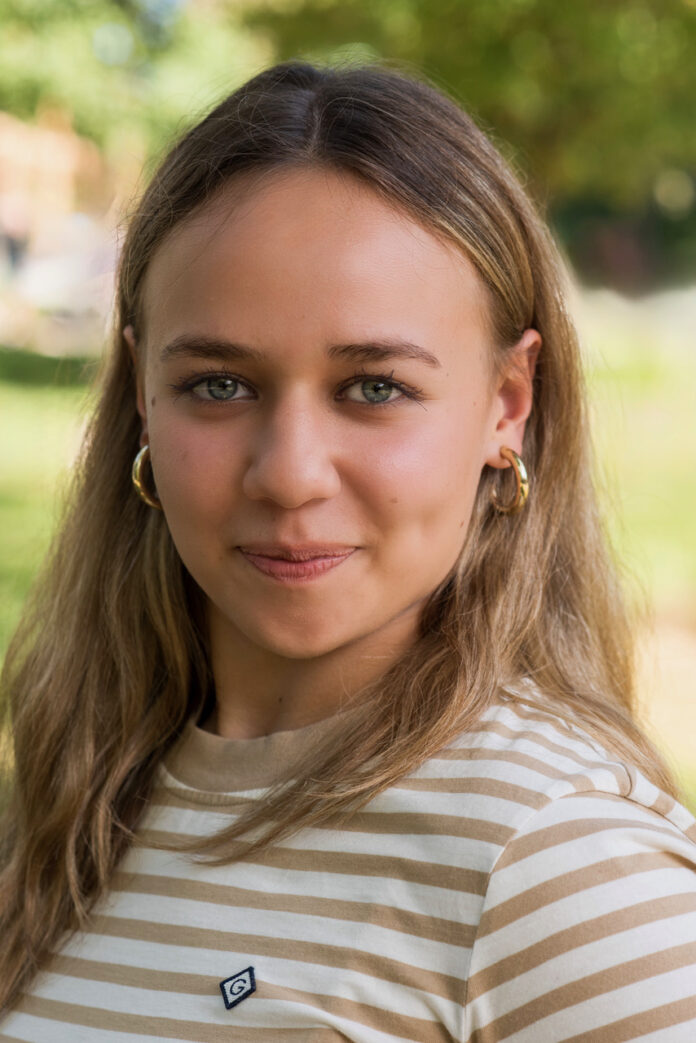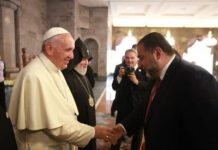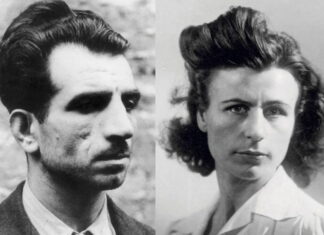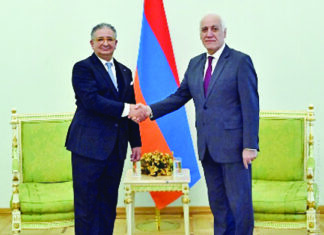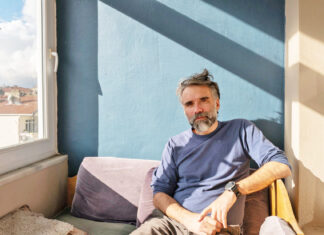By Symona Baiatian
To drive up the narrow roads of the mountains of Artsakh is to find a bit of peace — even if that peace happens to include 20 of your closest family and friends crammed into one bus chatting, picking on you, reminding you that this is your day. At the impressionable age of 12, I arrived in the “mother country” to forge a deeper relationship with my heritage that would guide me in discovering who I am and who I am to become. Our destination? A 13th-century Gandzasar Monastery in Artsakh (Nagorno Karabakh), which serves as an Armenian Apostolic Church, where I would be Christened.
As the ceremony began, the beauty of the church and the landscape opened up a new world for me. The beautifully carved crosses, Khachkars, were perfectly embedded into the church’s facade. The aroma of the candles was a subtle sweetness mixed with a smoky undertone, which I imagined had absorbed centuries of whispered hopes. Each fragment of light shining through the arches felt like fairies stroking my skin. I had always wondered about the treasures held on this ancient Armenian land, not knowing how deeply they would soon matter to me. Here, I started to evolve into Symona, embracing a more profound sense of identity that tied me to my Armenian roots and propelled me toward my future.
Memories of childhood flooded my mind as I stood in this sacred place: running out of school with paper-cut and colored crosses, Sundays at church lighting candles, and my first educational experience at St. Stephen’s Armenian Elementary School in Watertown, Mass. But the real learning happened at home, with my family and friends, where we were nourished as much by shared experiences as by the delicious jingalov hats, a flatbread filled with greens, that I would spend all day preparing with my grandmother.
As I stood in the church, I saw joy on my parents’ faces. Their forced journey from the Soviet region and their shared desire to return was fulfilled through this homecoming. Their eyes shone with a dream reached, and our cheeks were wet with tears when the priest clasped my hands, pressed them against his heart, and then to mine. “Menk’ bolors k’vo yntanik’n yenk’” he said. “We are all your family.”
From that moment on, I felt the true meaning of family in a way I’d never known before. Whether it was community members taking us horseback riding through the sunny valley, where we picked flowers, or friends welcoming us into their homes for traditional barbecues and letting us play with their fresh, traditional lavash bread dough, moments like these continued throughout my stay in Artsakh and filled me with belonging.

